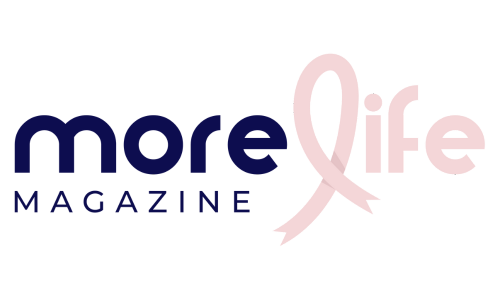Unleashing Power Through Unity: the TOUCH Effect on Black Breast Cancer Support
Innovation and courage often pave the way for transformative change, and a remarkable mother-daughter duo are playing a significant role in the evolution of Black Breast Cancer advocacy. Meet Ricki Fairley and Hayley Brown, the visionary minds behind TOUCH, The Black Breast Cancer Alliance. Their mission is not just about altering the trajectory of breast cancer awareness and support for Black women, it's a call to action for community leaders to come together and mobilize a collective impact.
Black Breast Cancer with a special TOUCH
Embracing a 'to and through' philosophy, TOUCH delivers a comprehensive range of programs and services tailored to Black women at every step of their breast cancer journey. Hayley explained, "We stand by women through the journey – from maintaining breast health to diagnosis, and on into survivorship." However, what truly sets TOUCH apart lies in their groundbreaking approach to collaboration and community engagement.
Gone are the days of long lectures at health events. Instead, TOUCH goes into unexpected spaces, starting candid conversations about breast cancer in corners where it was once a hushed topic. "Our goal is to be where Black women truly live, work, play, pray, and yes, slay,” said Hayley.
This strategic shift has proven invaluable. The people they encounter, often untouched by the realities of breast cancer, find themselves drawn into meaningful exchanges and leave with a new level of awareness.
“We don’t know what we don’t know.”
A profound lack of knowledge and understanding is the most pressing challenge facing Black women regarding breast cancer according to Ricki and Hayley. They argue that Black women simply do not know what they're up against when it comes to breast cancer. When diagnosed, Black women are confronted with a terrifying amount of unfamiliar terms and treatment paths. Yet, they are forced to make life-altering decisions almost instantly, often without the necessary information or guidance. Often, Black women are not given the full picture, leading to decisions that could be potentially fatal.
Time, they stressed, is precious, and too often Black women are losing out. Delays in diagnosis and treatment, fear and confusion, all contribute to the loss of precious time with family and loved ones.
TOUCH seeks to address these pressing issues by educating women with the right information before they even step into the dark. By creating accessible, culturally sensitive resources and fostering an environment of trust and support, they hope to arm Black women with the knowledge they need to make informed decisions about their health.
Breast cancer is the only enemy
TOUCH's inspiring efforts extend beyond the services it provides, reshaping the very essence of collaboration. Drawing inspiration from "Power: The Rise of Black Women in America" by Charity C. Elder, Hayley emphasizes their shared empowerment as Black women, stating, "Our power is collective, and it's time we channel it together."
They don’t see power as a tool to establish dominance, but rather a tool to uplift all Black women. Ricki explained, "I walk into a room with a broader vision, advocating not only for myself but for every Black woman who needs support."
Their approach to collaboration extends beyond mere words; they're making practical changes, too. "How can I make sure that when I'm in Atlanta for this big thing, I'm also connecting with the local organizations?" Hayley considers. Their aim is constant engagement and support for local organizations, ensuring that 'being national' doesn't disconnect them from grassroots initiatives.
In a competitive landscape, Ricki and Hayley's focus remains unwavering – it's not about outdoing each other; it's about eliminating breast cancer. This mindset has led to a collaborative approach that seeks to avoid overlap and optimize the use of resources across the Black breast cancer community. Hayley added that it shouldn’t be taken personally if someone else is better equipped for a certain role. "If there's somebody out there doing that part of the work well, give them the funding," she suggests, championing a sense of humility and shared effort that channels resources where they can create the most impact.
Always striving for better
Ricki Fairley's dynamic approach to confronting the status quo and her commitment to challenging every aspect of breast cancer awareness, screening, treatment, and survivorship, is truly a breath of fresh air. She firmly believes in the necessity to question everything until a significant reduction in death rates is observed. As Ricki and Hayley emphasize, the journey to better treatment and survival for Black women is not a solitary path. They urge everyone to think differently, challenge preconceived notions, and continuously strive for better solutions.
In the end, Ricki measures the success of TOUCH by life – people are not only alive, they’re living their best lives. At TOUCH, they see the relationships they build and their collaborative efforts as pivotal in the fight against Black Breast Cancer, making the journey easier for everyone involved.

